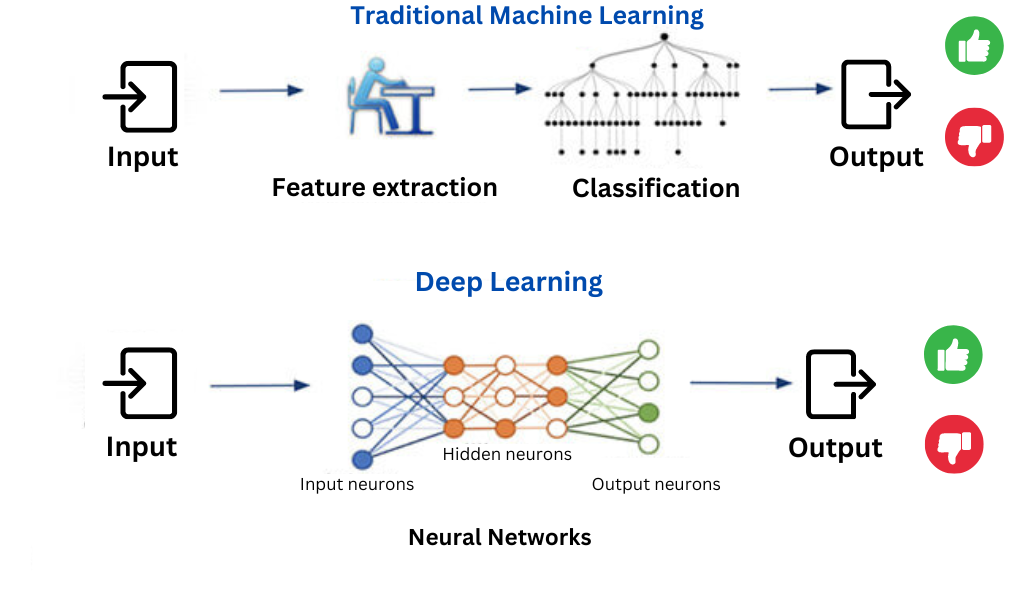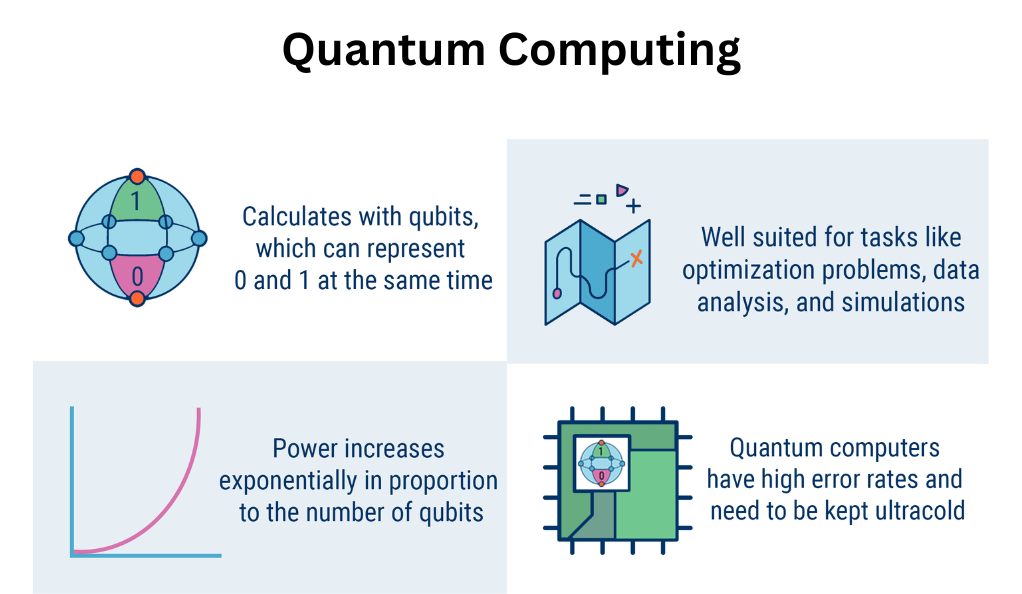Deep Dive into Deep Learning: Revolutionizing Modern AI
Deep learning, a subset of machine learning, has become the cornerstone of modern artificial intelligence (AI). Its applications span across various industries, from healthcare to finance, and have revolutionized the way we perceive and interact with technology. This article delves deep into the intricacies of deep learning, its advancements, challenges, and the vast opportunities it presents.
Contents
Introduction to Deep Learning
Deep learning is a machine learning technique that teaches computers to do what comes naturally to humans: learn by example. It uses neural networks with many layers (hence “deep”) to analyze various factors of data. The depth of these networks allows for intricate patterns to be recognized, patterns that simpler models might overlook.
Neural Networks Explained
At the heart of deep learning is the neural network. Comprising interconnected nodes or “neurons”, these networks mimic the human brain’s structure, processing and analyzing data at an unprecedented scale and speed. Each neuron processes information, and when trained, these networks can make sophisticated decisions based on the data they receive. The more data they’re exposed to, the better their decision-making capabilities become.
From Traditional Machine Learning to Deep Learning

While traditional machine learning algorithms rely on explicit instructions and feature extraction, deep learning models learn from vast amounts of data, often surpassing human accuracy in tasks like image and speech recognition. This shift from manual feature engineering to automated feature learning has been a game-changer in the AI domain.
The Evolution of Algorithms
Over the years, algorithms have evolved from simple linear regressions to complex neural networks. This evolution has enabled machines to process information more like a human, making predictions or decisions without being explicitly programmed. As computational power increased and data became more abundant, the capabilities of these algorithms expanded, leading to the deep learning revolution we witness today.
Industries Transformed by Deep Learning
Deep learning’s impact is profound, reshaping industries and creating opportunities previously deemed impossible. Its ability to process and analyze vast amounts of data in real-time has led to innovations that were once the stuff of science fiction.
- Healthcare
From diagnosing diseases to drug discovery, deep learning aids in predictive analysis, improving patient outcomes and reducing costs. Medical imaging, for instance, has seen a revolution with AI models detecting anomalies that might be missed by the human eye. Similarly, predictive analytics can now forecast patient health trajectories, enabling timely interventions. - Finance
Deep learning algorithms predict market trends, detect fraud, and automate trading, leading to more efficient and secure financial systems. Algorithmic trading, powered by deep learning, can analyze market data in real-time, making split-second decisions that maximize profits. Additionally, fraud detection systems can now identify suspicious activities with greater accuracy, safeguarding users’ assets. - Entertainment
From content recommendation to virtual reality, deep learning enhances user experiences, making entertainment more personalized and immersive. Streaming platforms, for instance, use deep learning to analyze user preferences and suggest content, while game developers employ it to create more realistic and interactive virtual environments.
Challenges in Deep Learning
Despite its potential, deep learning faces challenges, including data privacy concerns, model interpretability, and the need for vast amounts of data. Addressing these challenges is crucial for the sustainable growth of the technology.
Ethical AI Practices
As AI’s influence grows, so does the need for ethical considerations. Ensuring fairness, transparency, and accountability is crucial to avoid biases and ensure trust in AI systems. There’s a growing demand for AI models that can be easily understood and explained, ensuring that decisions made by AI can be justified and are not arbitrary.
The Future of Deep Learning
The horizon for deep learning is vast. With continuous research and development, we can expect even more groundbreaking advancements in the coming years. As technology evolves, so will the applications and capabilities of deep learning.
Quantum Computing and AI

The integration of quantum computing with deep learning could lead to even faster computations, opening doors to solve complex problems. Quantum computers, with their ability to process multiple possibilities simultaneously, can potentially train deep learning models at speeds previously thought impossible. This synergy could lead to breakthroughs in fields like cryptography, climate modeling, and drug discovery.
Staying Informed in the AI Era
With AI’s rapid advancements, staying updated is essential. Whether you’re an enthusiast, developer, or a curious reader, understanding the nuances of AI is crucial. The field is ever-evolving, and being informed is the key to leveraging its potential.
- Insights and Analyses
Dive deep into research papers, blogs, and articles that offer in-depth analyses of the latest in AI. The AI community is vibrant, with researchers and practitioners regularly sharing their findings, insights, and challenges. Engaging with this content not only keeps you updated but also provides a holistic view of the field’s trajectory. - Interviews with Experts
Engage with AI pioneers through interviews and discussions to gain firsthand knowledge of the industry’s direction. These interactions provide a unique perspective, shedding light on the practical challenges, future directions, and the innovations on the horizon.
Conclusion
Deep learning, as we’ve explored, is not just a technological advancement; it’s a paradigm shift in the way we approach problems, make decisions, and innovate across industries. Its transformative power is evident in the myriad of applications, from healthcare diagnostics to financial forecasting. However, with great power comes great responsibility. As we continue to integrate deep learning into our daily lives, it’s imperative to address its challenges head-on, ensuring ethical, transparent, and responsible AI practices. The future of AI, underpinned by deep learning, holds immense promise. By staying informed, engaged, and ethical, we can harness its potential to its fullest, ushering in an era of unprecedented technological progress.
FAQs
Deep learning models use neural networks with multiple layers to learn from data, often requiring vast amounts of data and computational power. In contrast, traditional machine learning relies on manual feature extraction and explicit programming.
Deep learning aids in diagnosing diseases, predicting patient outcomes, drug discovery, and medical imaging, among other applications.
Yes, concerns include data privacy, potential biases in AI models, and the lack of transparency or interpretability in some deep learning systems.
Engage with research papers, articles, blogs, and interviews with experts in the field. Participate in conferences, workshops, and online forums dedicated to AI.
The future holds more advanced neural network architectures, integration with technologies like quantum computing, and broader applications across various industries.
